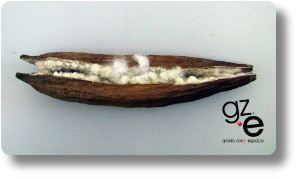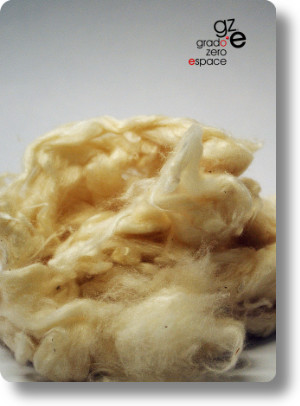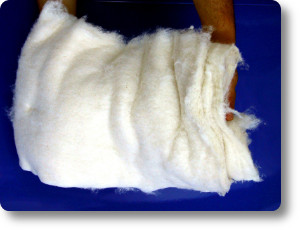Kapok fiber is a silky cotton-like substance that surrounds the seeds in the pods of the ceiba tree. The ceiba tree belongs to the Bombacacae family and is primarily found in Asia in tropical and semi-tropical climates at an altitude less than 1000 feet, in porous volcanic soil.
The silky kapok fiber, or floss, is a tiny cellulose tube with air sealed inside and it is ideal for stuffing life preservers and other water-safety equipment because of its excellent buoyancy. It can support as much as 30 times its own weight in water and loses only 10 percent of buoyancy over a 30-day period. It is eight times lighter than cotton and, thanks to its vacuum fibers, extremely thermal-insulator. Kapok fiber is also lightweight, non-allergic, non-toxic, resistant to rot and odorless. Unfortunately, due the fact that it is inelasic and too fragile, it can't be spun but its outstandig characteristics of lightness, impermeability, thermal-isolation and eco-naturality are used as stuffing in some garments of an italian fashion line.
Moreover there's yet another plusvalence involving the use of kapok fibers: since the ceiba trees grow only naturally and there aren't coltivations of this plant, the use of the kapok silk stimulates the safeguard of these secular plants which are ecologic patrimony of our planet.


